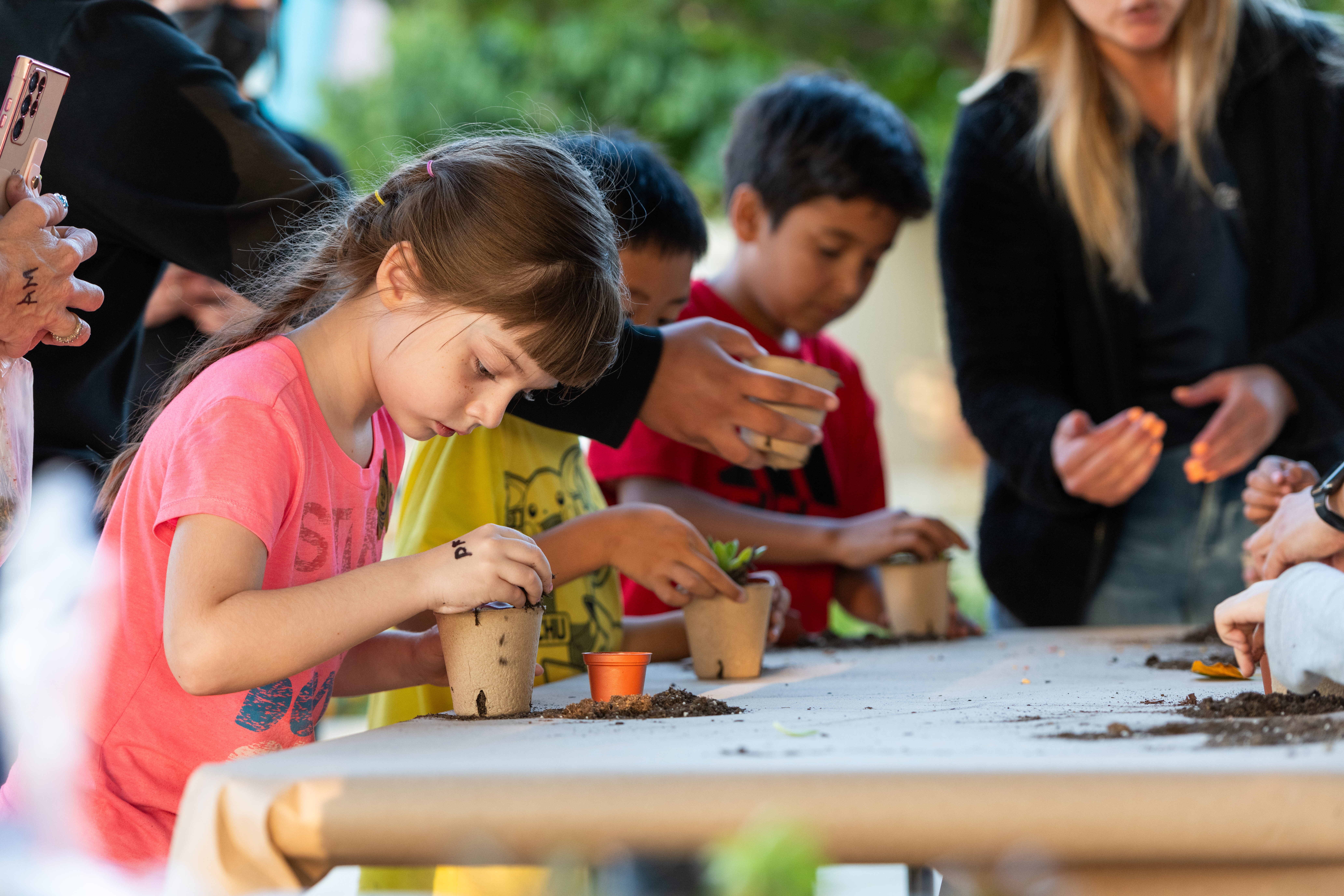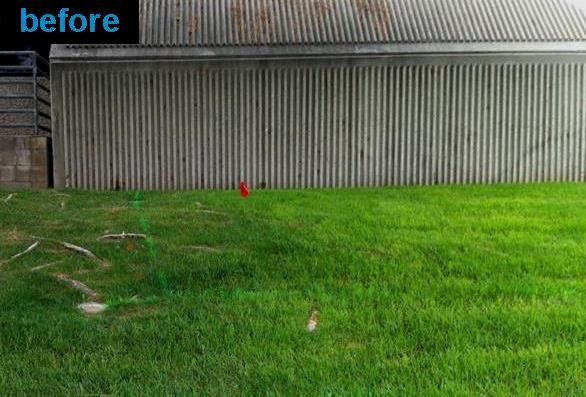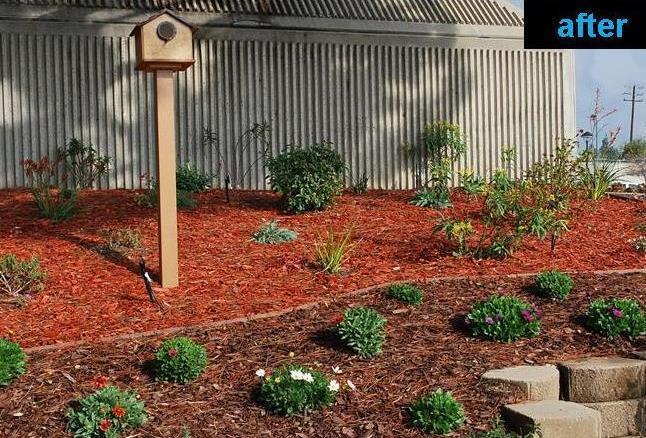School Garden Program
Teach your kids how to conserve natural resources and help the environment by starting a garden at school. The County will help!
The School Garden Program provides an opportunity for students and teachers to work together, grow their own food, exercise, and eat healthy. This instills pride in themselves, the community, and environment. The garden becomes an outside classroom where skills in math, science, art, health, and social studies come together for a fun learning experience. Here’s our brochure.
The County provides at no cost:
- Raised beds
- Starter Plants
- Soil
- Garden Tools
- Backyard Compost Bin
- Worm Composting Bin (includes worms and demonstration)
School gardening resource links:

Public Works Annex Garden
Welcome to our demonstration garden here in front of the Annex Building at our Headquarters. It is open and meant for public view. We replaced water-intensive lawn with drought-tolerant landscape that attracts birds and insects. The garden includes these sustainable elements:
- Xeriscape: Drought-tolerant landscaping conserves water, especially in drought conditions. Selected plants and succulents replace thirsty grass and provide for an attractive alternative landscape. No more mowing the lawn.
- Bioswale: A bioswale demonstrates how to draw stormwater run-off into the ground, instead of washing onto to the street where it drags motor oil/fluids to the sea. It consists of a thick pervious layer of rocks which holds water and acts as a conduit to the soil beneath.
- Raised-beds: Two raised-beds showcase growing local organic food. Part of a closed-loop system that produces herbs and vegetables for consumption in our cafeteria on premises, which then composts discarded food waste in worm bins. The worm castings and tea created then fertilize the garden.
- Wildlife: Planted fauna attracts a biodiverse array of birds and insects. This includes the Monarch Butterfly which has been in decline due to climate change issues. Selected plants invite hummingbirds and bees to feed on the nectar.

